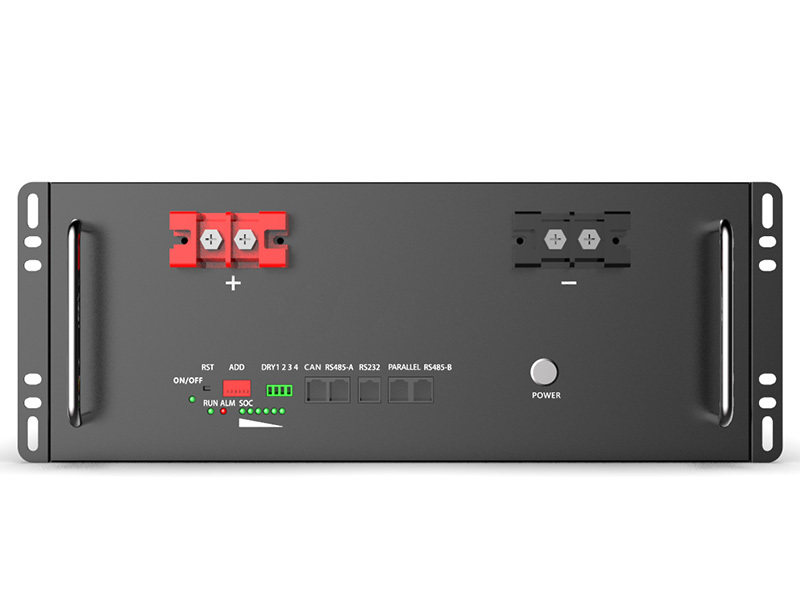Camping Adventures Made Easy: The Benefits of RV Lithium Batteries
Camping Adventures Made Easy: The Benefits of RV Lithium Batteries
Table of Contents
1. Introduction to RV Lithium Batteries
2. What Are RV Lithium Batteries?
3. Advantages of Lithium Batteries for RVs
3.1 Longer Lifespan and Durability
3.2 Lightweight Design for Easy Handling
3.3 Fast Charging Capabilities
3.4 Greater Energy Ef
2025-07-25

Camping Adventures Made Easy: The Benefits of RV Lithium Batteries
Table of Contents
- 1. Introduction to RV Lithium Batteries
- 2. What Are RV Lithium Batteries?
- 3. Advantages of Lithium Batteries for RVs
- 3.1 Longer Lifespan and Durability
- 3.2 Lightweight Design for Easy Handling
- 3.3 Fast Charging Capabilities
- 3.4 Greater Energy Efficiency
- 3.5 Enhanced Safety Features
- 4. Comparison with Lead Acid Batteries
- 5. How to Install RV Lithium Batteries
- 6. Maintaining Your RV Lithium Batteries
- 7. Cost-Benefit Analysis of RV Lithium Batteries
- 8. Frequently Asked Questions
- 9. Conclusion
1. Introduction to RV Lithium Batteries
In the realm of camping and outdoor adventures, power availability is a critical factor that can dictate the quality of your experience. Whether you are exploring national parks, embarking on road trips, or simply enjoying a weekend getaway, having a reliable energy source enhances your comfort and convenience. **RV lithium batteries** have emerged as a game-changer in this domain, providing numerous advantages over traditional battery technologies. In this comprehensive guide, we will delve into the multiple benefits of RV lithium batteries and how they can significantly improve your camping adventures.
2. What Are RV Lithium Batteries?
RV lithium batteries are rechargeable energy storage systems that utilize lithium-ion technology. Unlike conventional lead-acid batteries, which have been the standard in RVs for decades, lithium batteries offer superior performance in terms of energy density, weight, and longevity. As camping enthusiasts increasingly seek efficient and effective power solutions, RV lithium batteries have gained popularity for their ability to store and deliver energy efficiently, making them essential components of modern RV setups.
3. Advantages of Lithium Batteries for RVs
When it comes to enhancing your camping experience, RV lithium batteries stand out due to their remarkable advantages. Let us explore the key benefits that make them an ideal choice for your next outdoor adventure.
3.1 Longer Lifespan and Durability
One of the most significant advantages of RV lithium batteries is their **long lifespan**. While traditional lead-acid batteries typically last between 2 to 5 years, lithium batteries can last over 10 years with proper care. This longevity translates to reduced replacement costs and ensures that your energy supply remains reliable throughout your adventures. Their robust construction also makes them more resistant to temperature fluctuations, vibrations, and physical shocks, further enhancing their durability.
3.2 Lightweight Design for Easy Handling
**Weight** is a crucial consideration when outfitting your RV, especially if you're concerned about fuel efficiency and handling. Lithium batteries are significantly lighter than their lead-acid counterparts, often weighing up to 50% less. This reduction in weight makes for easier installation and transport, allowing you to maximize your gear without compromising on power.
3.3 Fast Charging Capabilities
Another remarkable feature of RV lithium batteries is their **fast charging capabilities**. Unlike lead-acid batteries that require longer charging times, lithium batteries can recharge rapidly, often achieving 80% of their capacity in just one hour. This means less time spent waiting for your batteries to charge and more time enjoying your outdoor activities.
3.4 Greater Energy Efficiency
Energy efficiency is paramount for RV users, especially when running multiple appliances and gadgets. RV lithium batteries deliver higher energy efficiency, typically ranging between 95% to 98%. This efficiency ensures that you can harness more energy from the battery for your needs, whether it's running lights, refrigerators, or electronic devices, ultimately extending the lifespan of your power supply.
3.5 Enhanced Safety Features
Safety is a top priority in any camping situation. Lithium batteries come equipped with built-in safety features such as over-discharge protection, over-current protection, and thermal runaway prevention. These advanced safety mechanisms help prevent accidents, making lithium batteries a reliable choice for RV campers.
4. Comparison with Lead Acid Batteries
To fully appreciate the advantages of RV lithium batteries, it's essential to compare them with traditional **lead-acid batteries**. While lead-acid batteries have been a long-standing option for RV owners, their limitations are becoming increasingly apparent as technology advances.
- **Lifespan**: Lead-acid batteries typically last 2-5 years, whereas lithium batteries can exceed 10 years.
- **Weight**: Lithium batteries are significantly lighter, aiding in fuel efficiency and ease of installation.
- **Charging Speed**: Lithium batteries charge faster than lead-acid batteries, allowing for quicker turnaround times during your travels.
- **Energy Density**: Lithium batteries have a higher energy density, meaning you can store more energy in a smaller space.
- **Cost**: Although lithium batteries have a higher upfront cost, their longevity and efficiency often result in cost savings over time.
5. How to Install RV Lithium Batteries
Installing RV lithium batteries might seem daunting, but with the right guidance, it can be a straightforward process. Here’s a step-by-step guide to help you with the installation:
1. **Gather Necessary Tools**: Ensure you have all required tools, including a wrench, screwdriver, and battery monitor.
2. **Disconnect Power**: Safety first! Disconnect the power supply from your RV before beginning any work on the electrical system.
3. **Remove Old Batteries**: If replacing lead-acid batteries, carefully remove them and clean the battery compartment.
4. **Install Lithium Batteries**: Place the new lithium batteries in the compartment, ensuring they are securely positioned.
5. **Connect Wires**: Connect the positive and negative cables to the appropriate terminals on the lithium batteries. Consult the manufacturer’s guidelines for specific instructions.
6. **Reconnect Power**: Turn the power supply back on and test the system to ensure everything is functioning correctly.
Following these steps will ensure a safe and successful installation of your RV lithium batteries.
6. Maintaining Your RV Lithium Batteries
Proper maintenance is crucial for maximizing the lifespan and performance of your RV lithium batteries. Here are some essential maintenance tips:
- **Regular Monitoring**: Use a battery management system (BMS) to monitor the state of charge and health of your batteries.
- **Avoid Over-Discharging**: Ensure that you do not deplete your lithium batteries below the recommended charge levels to prevent damage.
- **Temperature Control**: Store and operate your batteries within their recommended temperature ranges to maintain performance and safety.
- **Periodic Cleaning**: Clean the terminals and battery compartment to prevent corrosion and ensure good electrical connections.
By adhering to these maintenance practices, you can prolong the life of your RV lithium batteries and maximize their efficiency.
7. Cost-Benefit Analysis of RV Lithium Batteries
When considering RV lithium batteries, it's essential to weigh their upfront costs against their long-term benefits. Here’s a brief cost-benefit analysis:
- **Initial Investment**: The cost of a lithium battery can range from $800 to $2,500, depending on capacity and quality.
- **Long-Term Savings**: With a lifespan of over 10 years, lithium batteries eliminate the need for frequent replacements, resulting in significant savings over time.
- **Efficiency Gains**: Higher energy efficiency translates to lower energy costs during your camping trips.
- **Increased Comfort**: The ability to run multiple devices without the worry of power depletion enhances your camping experience, adding value to your investment.
In many cases, the initial expense of lithium batteries is offset by their longevity, efficiency, and the enhanced quality of camping experiences they provide.
8. Frequently Asked Questions
1. How long do RV lithium batteries last?
RV lithium batteries typically last over 10 years with proper care and maintenance, significantly longer than traditional lead-acid batteries.
2. Can I replace my lead-acid batteries with lithium batteries?
Yes, you can replace lead-acid batteries with lithium batteries. However, it's important to ensure your RV's electrical system is compatible.
3. Do lithium batteries require special charging equipment?
Most lithium batteries work with standard RV chargers, but it's advisable to use a charger specifically designed for lithium batteries for optimal performance.
4. Are RV lithium batteries safe to use?
Yes, RV lithium batteries are considered safe, as they come with built-in safety features that prevent overcharging and overheating.
5. What maintenance do RV lithium batteries require?
Regular monitoring, avoiding over-discharging, and maintaining appropriate temperature conditions are key maintenance practices for RV lithium batteries.
9. Conclusion
RV lithium batteries provide a multitude of benefits that can significantly enhance your camping experience. With their longer lifespan, lightweight design, fast charging capabilities, and improved energy efficiency, these batteries are undeniably a superior choice for RV enthusiasts. As you plan your next adventure, consider the advantages of upgrading to RV lithium batteries for a more enjoyable and hassle-free camping experience. Transitioning to lithium technology ensures you’ll have the power you need to fully embrace the great outdoors while enjoying the conveniences of modern living.
Key words:
Related News


